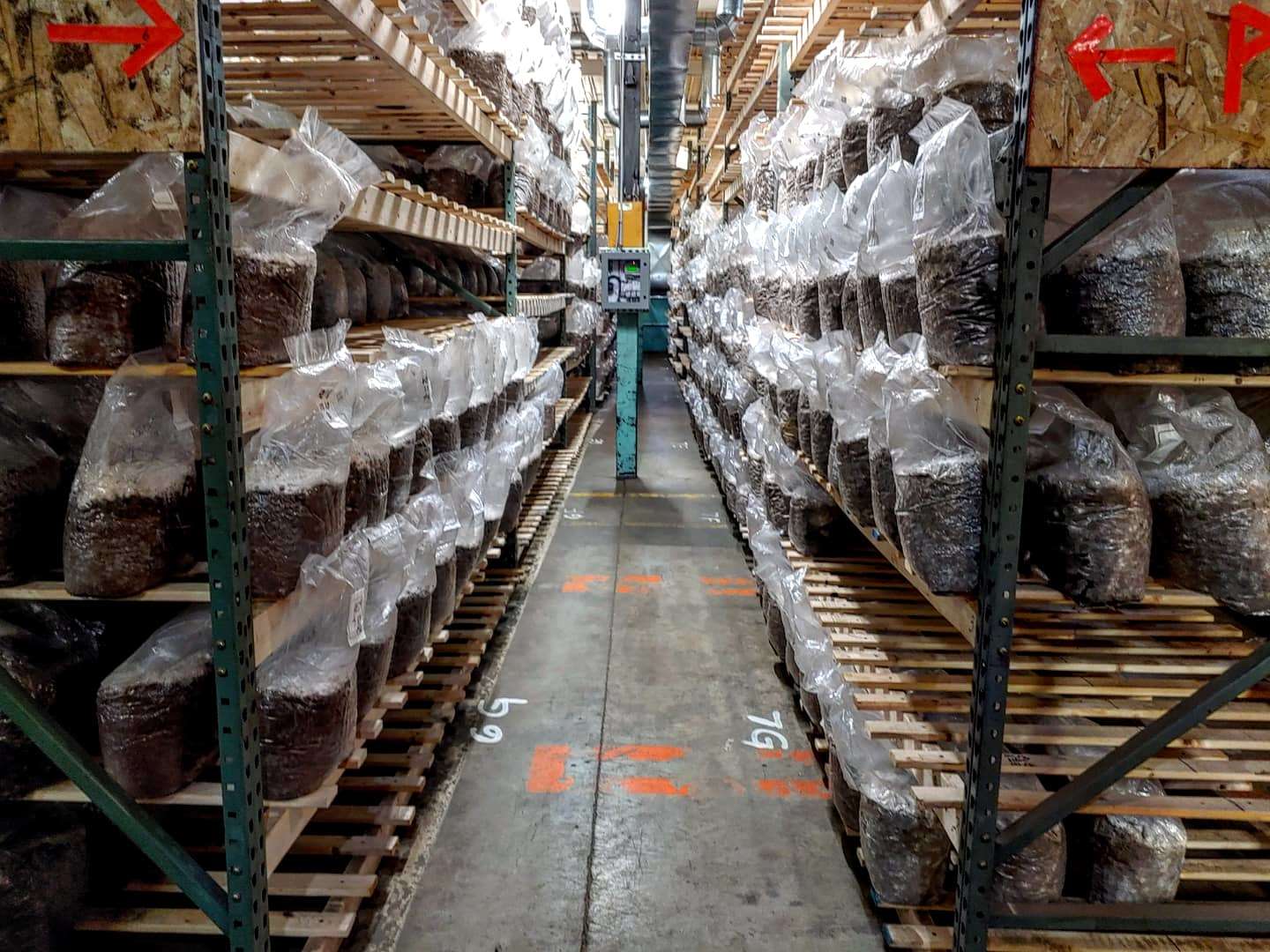
Company that supplies mushroom farms quintuples its space with Lewiston deal
 Courtesy / Maine Cap ‘N Stem Mushroom Co.
The idea is that farms can skip expensive and complicated lab work involved in sterilization, seen here, and spawn production.
Courtesy / Maine Cap ‘N Stem Mushroom Co.
The idea is that farms can skip expensive and complicated lab work involved in sterilization, seen here, and spawn production.
A company that makes growing substrates and other supplies for mushroom farms nationwide has seen demand, well, mushroom since it started in 2014.
Now Maine Cap ‘N Stem Mushroom Co. is planning to expand from its 20,000-square-foot facility in Gardiner to add a 75,600-square-foot property in Lewiston, for a total of nearly 100,000 square feet.
Maine Cap ‘N Stem bought 21 Fireslate Place from Maine Bucket Co. for $1,294,650.
The deal was brokered by Kevin Fletcher of KW Commercial/The Fletcher Group in conjunction with Michael Carey of Tranzon Auction Properties as part of a joint venture.

Maine Bucket Co. built, owned and occupied the building as a wholesale maker of wooden displays.
“We’ve just been growing rather quickly in this mushroom niche,” said Christopher Campbell, who co-founded Maine Cap N' Stem with Erik Lomen.
Industry takes off
Campbell is a Portland architect and a designer whose work has been featured in publications such as the New York Times and Dwell magazine and in museum exhibits. He helped start an arts venue called Space Gallery and a performing arts and the concert venue One Longfellow Square, both in Portland.

Campbell said he and Lomen had strong side interests in foraging for wild mushrooms. Lomen started selling to restaurants and, in 2014, Maine Cap ‘N Stem was born when the two started cultivating a variety of gourmet mushrooms in less than 200 square feet of basement space in Portland.
Within a year, its fresh mushroom production expanded from the Portland basement to a 3,000-square-foot facility in Westbrook.
At the same time, the micro mushroom industry began exploding, as small farms across the country began to develop cultures, spawn and fruiting substrate to grow fresh mushrooms and supply self-built distribution systems for sales to farmers markets, restaurants and wholesalers.

Campbell and Lomen realized that, instead of growing mushrooms, they could make supplies to help other farms ramp up production.
“We decided to dedicate more of our time in that direction,” said Campbell.
In 2016, Maine Cap N Stem dropped out of the fresh mushroom market all together in order to supply the farms with ready-to-fruit substrate, becoming to first national producer and distributor of certified organic mushroom substrate for farms across the continental U.S., according to its website.
That same year, it moved to a 20,000-square-foot facility in Gardiner and began supplying farms across the country.
Mushroom ‘block’
Maine Cap N Stem’s product was a colonized substrate block inoculated with mushroom spawn. The idea was that they would allow farms to skip expensive and complicated lab work involved in producing their own spawn and sterile mushroom blocks, and instead focus on fruiting and selling mushrooms.
From 2019 to 2020, Maine Cap N Stem developed a spawn production facility and expanded its offerings to include not only substrate but also spawn and culture products plus consultation services.
“We’ve found that many of our customers are growing and so we’re growing with them,” Campbell said.
A primary product is called a “mushroom block.”
The 10-pound block, about the size of a small shoebox, is basically a plastic bag filled with sawdust that has been colonized by mushroom organisms, or mycelium. The sawdust is infused by appropriate nutrients.
Inside the bag, the mycelium takes over. When the farmer receives the bag and cuts it open, an influx of fresh air signal the mycelium to fruit. The fruiting process takes about five days and the rate of production is quite high, he said.
The farmer then harvests the mushrooms.
“They’re cutting pounds of mushrooms off of what we call a block,” he said.
The used sawdust block makes a great soil amendment, he said.
Tons of blocks weekly
Farms generally buy many blocks at a time.
“We send out many, many tons of mushroom blocks, huge palette loads, on a weekly basis,” he said.
Distribution is across the U.S. and into Canada.

The company also sells spawn to farmers who want to create their own blocks, as well as a pelletized sawdust substrate product with and a proprietary nutrient mix. That product is for farmers who would like to do their own inoculation and incubation.
The company was looking for a larger facility for about a year.
“ We looked at a number of properties,” said Campbell.
When 21 Fireslate Place first came on the market, he dismissed it at first because it was a little too far away from the Gardiner location.
“But once I looked at it, it seemed ideal,” he said. “There’s a main building that’s quite large. A significant piece is that it has 25-foot ceilings. Our product stacks on shelves during incubation and this is a great way for us to make use of the square footage.”
The Gardiner location has 12-foot ceilings.
“We’re doubling the height capacity of our shelving,” he said. “We also store an enormous amount of other raw materials in the outbuildings, So this new location is a boon for us.”
Environmental controls
Fit-up isn’t too complicated. A main concern is keeping things cool because mushrooms like cool temperatures. Most of the company’s space is kept at 65 degrees year-round. In Lewiston, that means the building is almost the equivalent of a series of large walk-in coolers, along with a clean-room environment with tight controls over air flow, filtering and other considerations.
“When we inoculate the bag with our spawn, we don’t want any other fungus floating in as a competitor,” Campbell said. “So our environments are very controlled.”
The goal is to be operational in Lewiston in early 2023.
“It will take a few months to do the fit-up and get the components in there,” he said.
Investment into new equipment alone will be well over $500,000.
The Gardiner location is a lease.
“We’ll continue to maintain the Gardiner facility,” said Campbell. “It’s ideal for certain parts of our business.”
The company employs about 25 people now.
“Once the new place gets in gear, over the next few years we think that might double,” he said. “It will take us a little time to ramp up. It’s a very hands-on activity. Once you get a crew who really knows what they’re doing, they really make a big difference in terms of consistency and harvest size.”
For a while, the company was almost doubling its sales year over year. That’s slowed down a bit, but the growth rate still continues between 20% and 40% annually.
Campbell still practices architecture, but with a much lighter load these days, particularly as he focused on the design of the new Lewiston plant.
The company’s growth has come as something of a surprise.
“I didn’t wake up one morning and say, ‘I want to be a mushroom mogul,’” he said. “Professionally, I’m an architect. Next thing you know, it’s, ‘Oops, we need to hire some people.’”










0 Comments